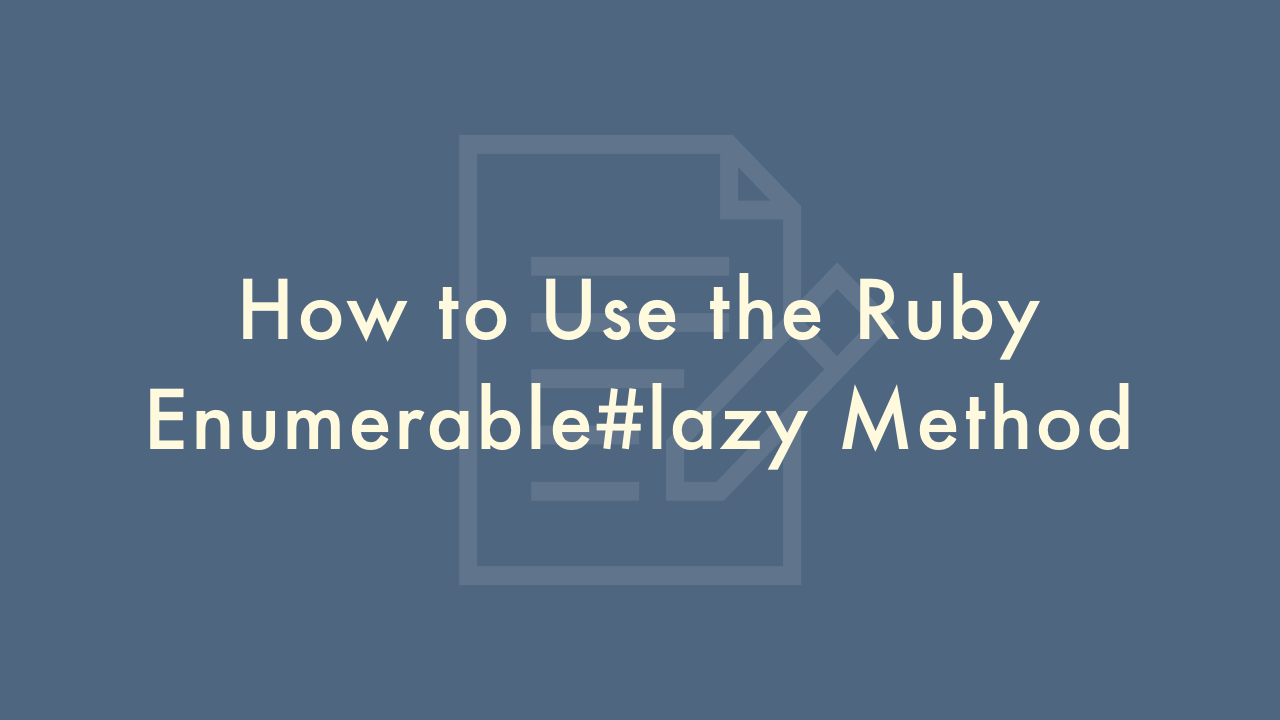How to Use the Ruby Enumerable#lazy Method

Contents
In this article, you will learn how to use the Ruby Enumerable#lazy method.
Using the Enumerable#lazy method
The Ruby Enumerable#lazy method is a powerful tool for optimizing the performance of enumeration in Ruby. It is designed to improve performance by deferring the computation of enumerable operations until they are actually needed.
The lazy method is part of the Ruby Enumerable module and is included in several built-in Ruby classes, such as Array, Hash, and Range.
Here’s an example of how to use the lazy method to optimize performance when processing large arrays of data:
data = (1..1000000)
# without lazy
data.select { |x| x % 2 == 0 }.map { |x| x * 2 }.take(10)
# with lazy
data.lazy.select { |x| x % 2 == 0 }.map { |x| x * 2 }.take(10).force
In the example above, we have a range of numbers from 1 to 1,000,000. We want to select all even numbers, multiply them by 2, and take the first 10 results. We can do this with the select and map methods. However, if we use the lazy method, we can improve performance by deferring computation until it is needed.
In the first example, we use select, map, and take methods without lazy. This means that Ruby will perform all of the operations on the entire range of numbers before returning the first 10 results.
In the second example, we use lazy to defer computation until it is needed. This means that Ruby will only perform the necessary operations on the range of numbers that are actually needed to return the first 10 results. We use the force method to evaluate the lazy enumerator and return an array of results.
The lazy method returns a lazy enumerator, which is an object that represents a sequence of enumerable operations. It defers computation until a terminal operation is called on the enumerator, such as force, to_a, or reduce.
Here’s another example of how to use lazy with an array of data:
data = [1, 2, 3, 4, 5, 6, 7, 8, 9, 10]
# without lazy
data.select { |x| x % 2 == 0 }.map { |x| x * 2 }
# with lazy
data.lazy.select { |x| x % 2 == 0 }.map { |x| x * 2 }.force
In this example, we have an array of numbers from 1 to 10. We want to select all even numbers, multiply them by 2, and return the result. We can use the select and map methods to achieve this.
Once again, we use the lazy method to improve performance. This means that Ruby will only perform the necessary operations on the array of numbers that are actually needed to return the result.